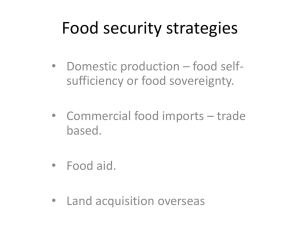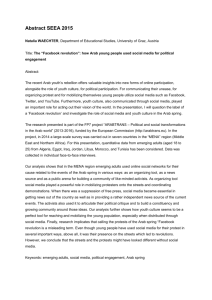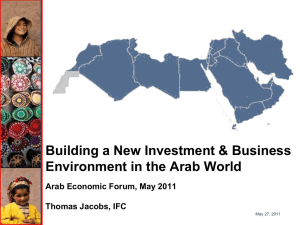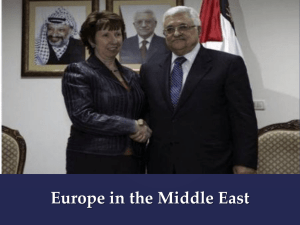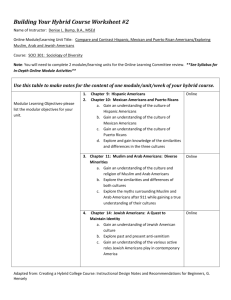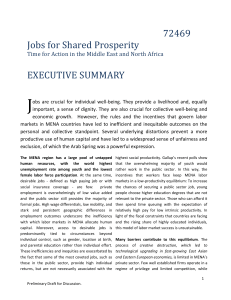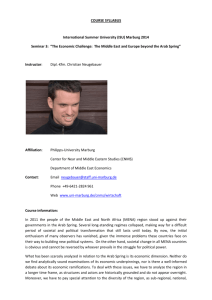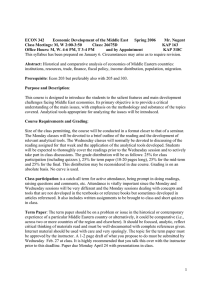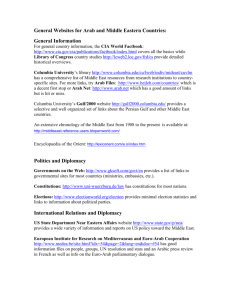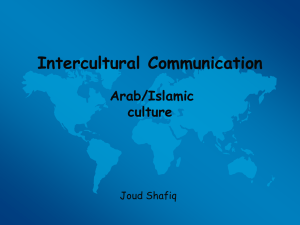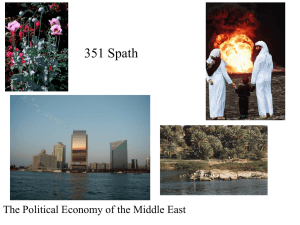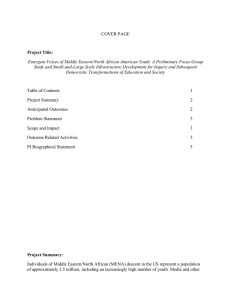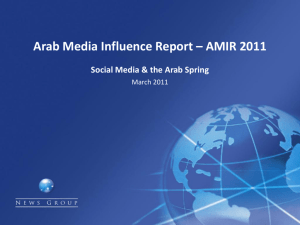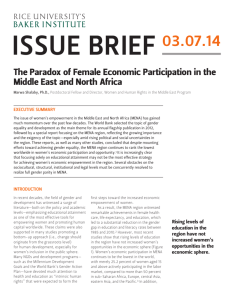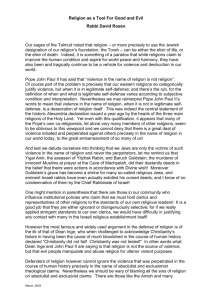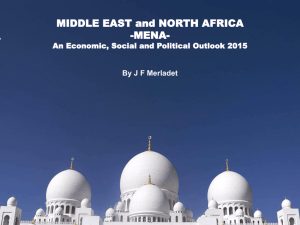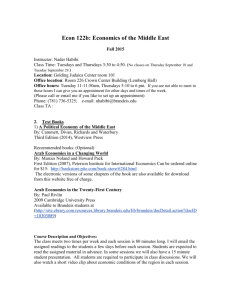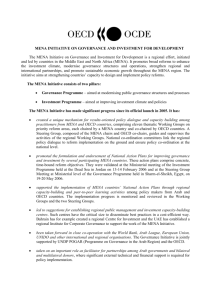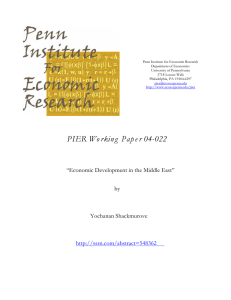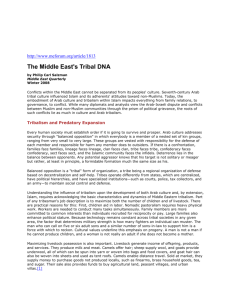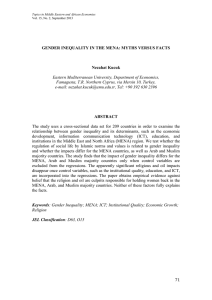JSIS 487 C: Human Rights in Islam Study Guide # 8
advertisement
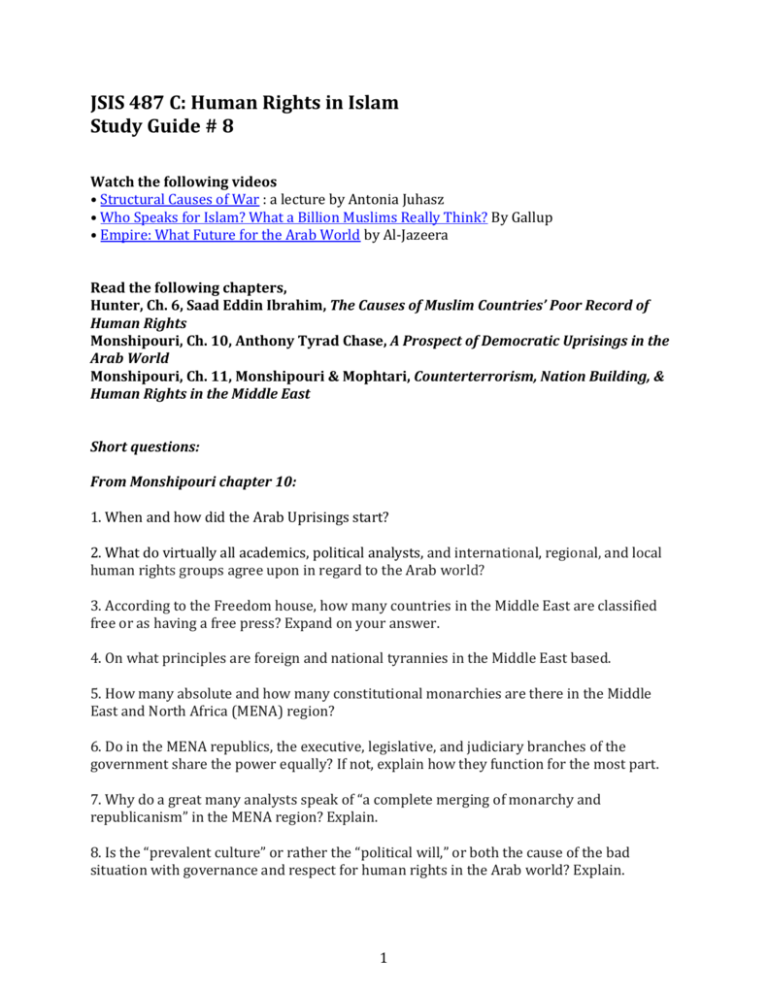
JSIS 487 C: Human Rights in Islam Study Guide # 8 Watch the following videos • Structural Causes of War : a lecture by Antonia Juhasz • Who Speaks for Islam? What a Billion Muslims Really Think? By Gallup • Empire: What Future for the Arab World by Al-Jazeera Read the following chapters, Hunter, Ch. 6, Saad Eddin Ibrahim, The Causes of Muslim Countries’ Poor Record of Human Rights Monshipouri, Ch. 10, Anthony Tyrad Chase, A Prospect of Democratic Uprisings in the Arab World Monshipouri, Ch. 11, Monshipouri & Mophtari, Counterterrorism, Nation Building, & Human Rights in the Middle East Short questions: From Monshipouri chapter 10: 1. When and how did the Arab Uprisings start? 2. What do virtually all academics, political analysts, and international, regional, and local human rights groups agree upon in regard to the Arab world? 3. According to the Freedom house, how many countries in the Middle East are classified free or as having a free press? Expand on your answer. 4. On what principles are foreign and national tyrannies in the Middle East based. 5. How many absolute and how many constitutional monarchies are there in the Middle East and North Africa (MENA) region? 6. Do in the MENA republics, the executive, legislative, and judiciary branches of the government share the power equally? If not, explain how they function for the most part. 7. Why do a great many analysts speak of “a complete merging of monarchy and republicanism” in the MENA region? Explain. 8. Is the “prevalent culture” or rather the “political will,” or both the cause of the bad situation with governance and respect for human rights in the Arab world? Explain. 1 From Monshipouri chapter 11: 9. Which factors played an important role in prompting the resurgence of political Islam in the MENA region by the late 1970s? 10. What is “the Bush doctrine” and why did it fail in Iraq? 11. How can global terrorism be explained? 12. What is the best way to prevent global terrorism and ultimately eradicate it? 13. How many people live in the MENA region and how many of the countries of the region are considered “free?” 14. How come that the oil revenues have had "an incredibly corrupting influence," rendering the oil-rich states (rentier states) less accountable to public pressure and demands? 15. Which factors have contributed to the Tunisian uprising? 16. Why are the outside powers viewed in the MENA region as “a barrier to political liberalization?” 17. According to Robert Jervis, or according to any other scholarly source, what should the U.S.A. do to reduce terrorism? 18. Depict the U.S. aid to Pakistan and explain why this type of aid is not conducive to the long-term stability of the country. 20. The Bush administration’s war on terror has had twofold negative effects on human rights. Describe these negative effects. 21. Discuss the issue of Guantanamo Bay detainees. Why do some human rights agencies claim that the U.S. is violating basic human rights of the inmates? And how does the U.S. government defend itself from these accusations? 22. Discuss the issues of “torture” and “war outsourcing” as related to the “war on terror.” From Hunter, chapter 6, i.e. Lecture Notes 8: 23. Discuss all three factors (despotic vs. non-despotic regimes, textualists vs. contextualists, pro-Western vs. anti-Western sentiments) that influence human rights divide in the Arab and Muslim worlds. 24. Ibrahim mentions three elements of the U.S. foreign policy (the double standard applied 2 to the Arab and Muslim countries, the U.S. one sided support of Israel, and the U.S. unilateralism) as having a negative influence on the democratization efforts in the Arab and Muslim world. Discuss all of theses three U.S. policies and their influence on the region. 25. Is there love in politics? Conservative thinkers say “no.” Liberals say “yes.” Marxists say “no, but there could be.” What do you think? 26. Ibrahim believes that Islamism could be reconciled with democracy. Which arguments does he use to support his claim. 27. Based on the immense study Who Speaks for Islam? What a Billion Muslims Really Think? prepared by Gallup in 2008 discuss the attitudes of the world Muslims towards Shari’a and democracy. 28. What can be done to bring democracy and improve the human rights record in the MENA region? Essay questions: From Hunter, chapter 6: 1. Develop a hypothesis in which you will discuss whether one factor or more - be it economic, social, religious, cultural, or political – influence(s) the poor human rights record of Arab and Muslim countries. From Monshipouri chapter 10: 1. Explain the root causes of the recent uprising in the Middle East and North Africa. 2. Discuss the prospects for democratic change in the Middle East and North Africa. From Monshipouri chapter 11: 1. Examine the ways in which counterterrorism measures undermine democracy promotion in the Middle East and North Africa. 2. Explain why military intervention and occupation are unjustifiable and ill-conceived methods of confronting terrorism and militancy in the MENA region. From the video the Structural Causes of War 1. What were the root causes of the U.S. intervention in Iraq based on the lecture by 3 Antonia Juhasz entitled the Structural Causes of War? How did the intervention influence the level of human rights in the country, in region, and more broadly? From the program Empire: What Future for the Arab World by Al-Jazeera 1. Describe causes, consequences, and possible prospects of the Arab Uprisings of 2011. 4
